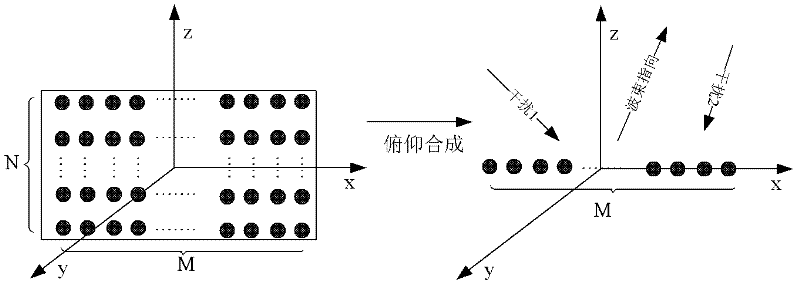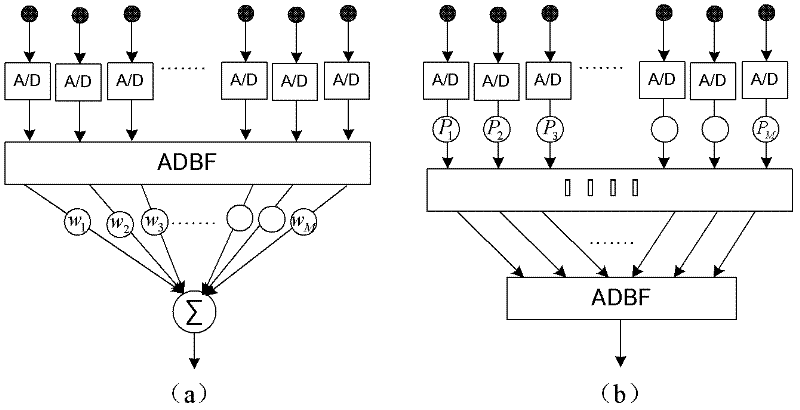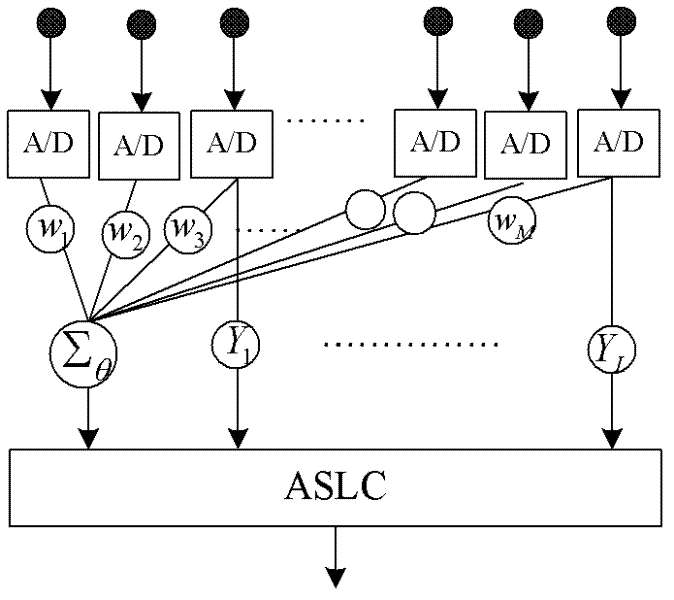Ultra-low side lobe adaptive digital beam forming (ADBF) method for digital array
A digital array and digital beam technology, applied in the field of ultra-low sidelobe adaptive digital beamforming, can solve problems such as the inability to effectively control the adaptive beam sidelobe level, and achieve improved sidelobe performance, less computation, and faster convergence. Effect
- Summary
- Abstract
- Description
- Claims
- Application Information
AI Technical Summary
Problems solved by technology
Method used
Image
Examples
Embodiment Construction
[0045] Based on the sidelobe canceller structure, the invention proposes a beam domain dimensionality reduction ADBF algorithm for designing auxiliary beams for interference sources and adaptively canceling interference signals in conventional and beams. Compared with the subarray ADBF, the algorithm in this paper has a lower degree of freedom in adaptive processing and faster convergence speed; compared with the ASLC technology, the algorithm in this paper optimizes the interference-assisted beam design, and the sidelobe performance of the adaptive beam is further improved. In this paper, the algorithm is derived based on the azimuth line array synthesized by the digital array and the pitch, but the idea in this paper can be extended to the two-dimensional array of azimuth and elevation.
[0046] 1. Digital array ADBF signal model
[0047] Assume that the digital array is a rectangular array with M dimensions in azimuth and N dimensions in elevation, and the spacing between a...
PUM
 Login to View More
Login to View More Abstract
Description
Claims
Application Information
 Login to View More
Login to View More - R&D
- Intellectual Property
- Life Sciences
- Materials
- Tech Scout
- Unparalleled Data Quality
- Higher Quality Content
- 60% Fewer Hallucinations
Browse by: Latest US Patents, China's latest patents, Technical Efficacy Thesaurus, Application Domain, Technology Topic, Popular Technical Reports.
© 2025 PatSnap. All rights reserved.Legal|Privacy policy|Modern Slavery Act Transparency Statement|Sitemap|About US| Contact US: help@patsnap.com



